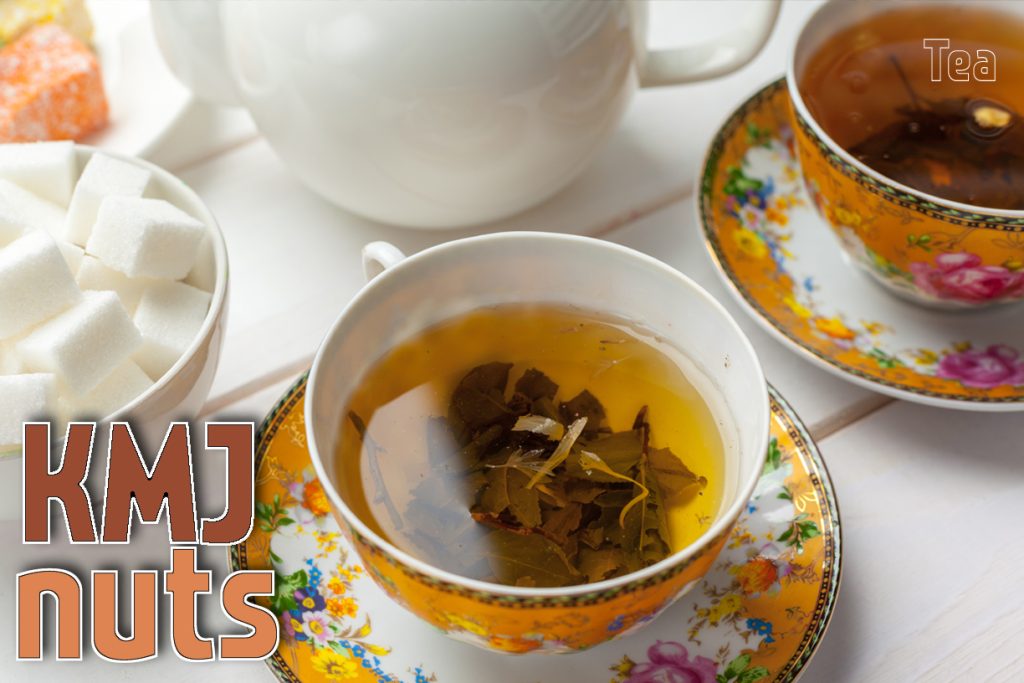
Why Kilimanjaro Tea is So Good for You
Kilimanjaro tea, grown in the lush, fertile slopes of Tanzania’s Kilimanjaro region, is celebrated not only for its bold flavor but also for its impressive health benefits. Cultivated in the shadow of Africa’s highest peak, this tea—primarily black tea, with some green and specialty varieties—owes its quality to the region’s unique terroir and traditional farming practices. Packed with antioxidants, vitamins, and other bioactive compounds, Kilimanjaro tea is a powerhouse beverage that supports overall health. Here’s why Kilimanjaro tea is so good for you.
1. Rich in Antioxidants
Kilimanjaro tea, particularly its black and green varieties, is loaded with antioxidants such as polyphenols, flavonoids (like catechins), and theaflavins. These compounds combat oxidative stress by neutralizing free radicals, which can damage cells and contribute to chronic diseases. Regular consumption of Kilimanjaro tea may:
Reduce Inflammation:
Polyphenols help lower inflammation, potentially decreasing the risk of conditions like arthritis and heart disease.
Protect Against Cancer:
Studies suggest that antioxidants in tea may inhibit the growth of cancer cells and reduce the risk of certain cancers, such as breast, lung, and colorectal cancer.
Support Skin Health:
Antioxidants protect against UV damage and aging, promoting healthier, more youthful skin.
The volcanic soils of the Kilimanjaro region, rich in minerals, enhance the tea’s antioxidant content, making it particularly potent compared to teas from other regions.
2. Boosts Heart Health
Kilimanjaro tea is a heart-healthy beverage, thanks to its ability to improve cardiovascular function. The flavonoids in black tea, which is the most common type produced in the region, have been linked to:
Lower Cholesterol Levels:
Regular tea consumption may reduce LDL (“bad”) cholesterol and increase HDL (“good”) cholesterol, improving overall lipid profiles.
Improved Blood Vessel Function:
Flavonoids enhance endothelial function, promoting better blood flow and reducing the risk of hypertension.
Reduced Risk of Heart Disease:
Studies show that drinking 2–3 cups of black tea daily can lower the risk of heart attacks and strokes by up to 20%.
The moderate caffeine content (about 20–60 mg per cup, depending on brewing) also supports heart health by improving circulation without overloading the system, unlike stronger stimulants.
3. Enhances Mental Alertness and Focus
Kilimanjaro tea contains caffeine and L-theanine, a unique amino acid that promotes relaxation without drowsiness. This combination provides a balanced energy boost, making the tea an excellent choice for mental clarity. Benefits include:
Improved Cognitive Function:
L-theanine and caffeine work synergistically to enhance focus, memory, and reaction time, as shown in studies on tea drinkers.
Stress Reduction:
L-theanine modulates brain activity, reducing anxiety and promoting a calm, alert state.
Mood Enhancement:
Regular consumption may increase dopamine and serotonin levels, improving mood and combating mild depression.
Whether you’re tackling a busy workday or enjoying a quiet moment, Kilimanjaro tea offers a refreshing way to stay sharp and relaxed.
4. Supports Digestive Health
Kilimanjaro tea has natural compounds that aid digestion. The tannins in black tea have astringent properties that can soothe the digestive tract, while polyphenols promote gut health by:
Reducing Inflammation:
Polyphenols may alleviate symptoms of inflammatory bowel conditions like Crohn’s disease or ulcerative colitis.
Balancing Gut Microbiota:
Tea’s antimicrobial properties can inhibit harmful bacteria while supporting beneficial gut flora.
Relieving Digestive Discomfort:
A cup of Kilimanjaro tea after meals may ease bloating or indigestion, a practice common in Tanzanian households.
Green tea varieties from the region, though less common, are particularly effective for digestion due to their higher catechin content.

5. Aids in Weight Management
Kilimanjaro tea can be a valuable ally for those looking to maintain a healthy weight. Both black and green teas from the region offer metabolism-boosting properties:
Increased Fat Burning:
Caffeine and catechins (especially in green tea) enhance thermogenesis, helping the body burn fat more efficiently. Studies show green tea can increase fat oxidation by up to 17%.
Appetite Regulation:
Tea’s mild diuretic effect and ability to stabilize blood sugar levels may reduce cravings and overeating.
Low-Calorie Beverage:
With zero calories (when consumed without sugar or milk), Kilimanjaro tea is a guilt-free alternative to sugary drinks.
Incorporating Kilimanjaro tea into a balanced diet and exercise routine can support long-term weight management.
6. Strengthens Immunity
The antioxidants and micronutrients in Kilimanjaro tea bolster the immune system, helping the body fend off infections. Key benefits include:
Antimicrobial Properties:
Polyphenols and tannins can inhibit the growth of bacteria and viruses, including those causing colds and flu.
Immune Cell Support:
Catechins enhance the activity of T-cells, a critical component of the immune response.
Vitamin Content:
Kilimanjaro tea contains small amounts of vitamins like C and E, which support immune function and tissue repair.
Drinking Kilimanjaro tea regularly, especially during flu season, may help keep illnesses at bay.
7. Promotes Bone and Dental Health
Kilimanjaro tea contains trace minerals like fluoride, manganese, and calcium, which contribute to stronger bones and teeth. Benefits include:
Cavity Prevention:
Fluoride strengthens tooth enamel, reducing the risk of cavities and tooth decay.
Bone Density Support:
Polyphenols and flavonoids may slow bone loss, particularly in postmenopausal women, as shown in studies on tea drinkers.
Anti-Inflammatory Effects:
Reduced inflammation supports overall bone health, preventing conditions like osteoporosis.
8. Sustainable and Ethical Production
Beyond its health benefits, Kilimanjaro tea is often grown using sustainable practices by smallholder farmers. The region’s tea estates, such as those in the Usambara Mountains and Kilimanjaro foothills, prioritize organic and fair-trade methods. By choosing Kilimanjaro tea, you support ethical agriculture, local communities, and environmentally friendly practices, which contribute to mental and social well-being.
Why Kilimanjaro Tea Stands Out

The unique growing conditions of the Kilimanjaro region—high altitude, volcanic soils, and ample rainfall—produce tea with a robust flavor and enhanced nutrient content. The tea is typically hand-picked, ensuring only the finest leaves are selected, and processed with care to retain its natural compounds. Whether enjoyed as a bold black tea or a delicate green variety, Kilimanjaro tea delivers both taste and health benefits.
How to Enjoy Kilimanjaro Tea
To maximize its benefits, brew Kilimanjaro tea properly:
Black Tea:
Steep 1 teaspoon of loose leaves in 8 oz of boiling water (100°C) for 3–5 minutes. Add honey or lemon for flavor, but avoid excessive sugar.
Green Tea:
Use slightly cooler water (80–85°C) and steep for 1–3 minutes to preserve catechins and avoid bitterness.
Serving Size:
2–3 cups daily is ideal for most people to reap health benefits without overconsuming caffeine.
Store tea in an airtight container away from light and moisture to maintain its potency.
A Word of Caution
While Kilimanjaro tea is generally safe, moderation is key. Excessive consumption (more than 4–5 cups daily) may lead to side effects like insomnia, stomach irritation, or increased heart rate due to caffeine. Those with iron deficiency should avoid drinking tea with meals, as tannins can inhibit iron absorption. Pregnant women and individuals with caffeine sensitivity should consult a doctor before increasing tea intake.
Conclusion
Kilimanjaro tea is more than a delightful beverage—it’s a health-boosting elixir rooted in the rich soils of Tanzania. Its high antioxidant content, heart-protective properties, and ability to enhance mental focus and immunity make it a fantastic addition to a balanced lifestyle. Whether you sip it for its robust flavor or its wellness benefits, Kilimanjaro tea offers a taste of nature’s finest, supporting both your body and the sustainable communities that produce it. So, brew a cup, savor the aroma, and let Kilimanjaro tea nourish you from the inside out.

